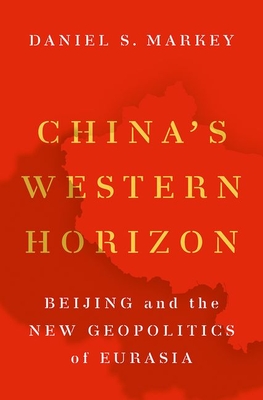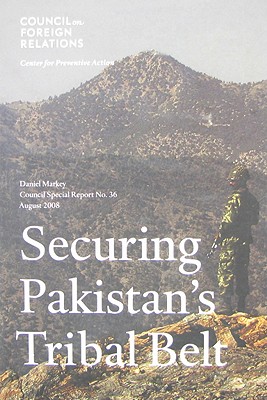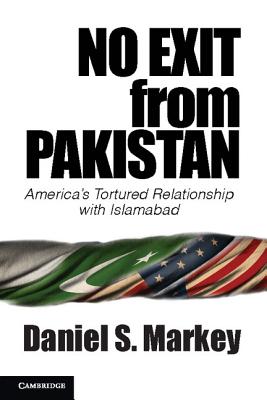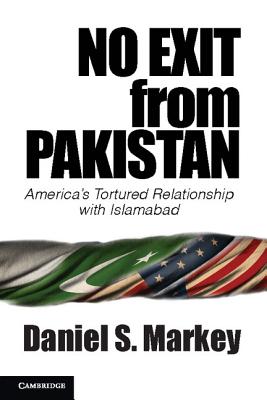
China's Western Horizon:Beijing and the New Geopolitics of Eurasia
Interview with Daniel Markey
May 20, 2020Sign Up to listen to full interview.
About Daniel Markey
Daniel Markey is a senior research professor at Johns Hopkins University’s School of Advanced International Studies (SAIS). He also serves as the academic director of the SAIS Global Policy Program and is a senior fellow in the SAIS Foreign Policy Institute. He teaches courses in international politics and policy.
Dr. Markey’s latest book, China’s Western Horizon: Beijing and the New Geopolitics of Eurasia, was published by Oxford University Press in March 2020. It assesses the evolving political, economic, and security links between China and its western neighbors, including Pakistan, India, Kazakhstan, Russia, Saudi Arabia, and Iran. It explains what these changes are likely to mean for the United States and recommends steps that Washington should take in response.
From 2007-2015, Daniel Markey was a senior fellow for India, Pakistan, and South Asia at the Council on Foreign Relations. While there, he wrote a book on the future of the U.S.-Pakistan relationship, No Exit from Pakistan: America’s Tortured Relationship with Islamabad (Cambridge University Press, 2013).
From 2003 to 2007, Dr. Markey held the South Asia portfolio on the Secretary’s Policy Planning Staff at the US Department of State. Prior to government service, he taught in the Department of Politics at Princeton University. At Princeton, he also served as executive director of Princeton’s Research Program in International Security. Earlier, he was a postdoctoral fellow at Harvard’s Olin Institute for Strategic Studies.
Dr. Markey is the author of numerous reports, articles, book chapters, and opinion pieces. His commentary has been featured widely in US and international media.
Source: danielmarkey.org
Interview Summary
China’s rapid economic development over the past three decades has enabled Beijing to spread its wings abroad, allowing the trading giant to secure its routes to world markets.
Most of China’s trade with the rest of the world is through maritime links that connect Chinese ports on the eastern seaboard and pass through the narrow and vulnerable strait of Malacca. With few friends in the region, China needs to protect its crude oil and commodities imports as well as trillions of dollars of goods exports.
With its newfound wealth and rising confidence, China has a strong desire to build alternative routes to markets in Europe, increasingly looking at its western border and overland routes passing through Eurasia.
In China’s Western Horizon, Professor Daniel S. Markey provides a comprehensive review of China’s western neighbors and the strategic challenges facing Beijing. He sheds much-needed light on a region of the world that is often forgotten and is rarely a priority of today’s leading powers.
Pakistan, once the focal point of the Chinese western border strategy, has been thrown in turmoil as the China Pakistan Economic Corridor is facing significant hurdles on the ground. Realities are no different in Kazakhstan and in other smaller neighboring nations. However, China has increasingly played a key role in supporting the ambitions of rival regimes in Iran and Saudi Arabia in an attempt to become a new strategic alternative in the region.
Key Topics
- Why is China extremely sensitive to its hold over western territories?
- How has Eurasia come to shape China’s trade routes and investment opportunities?
- Why do local politics and needs dictate Beijing’s negotiation with border nations?
- What has been the response of Central Asian states to Chinese overtures?
- Why could China's investment in Gwadar port in Pakistan end up empowering the Balochistan separatist movement?
- Will Beijing’s investments in Eurasian countries reinforce the existing political order, feed in the existing corrupt ways, support authoritarian states or lead to liberalizing or political reforms?
- Is China’s Belt and Road Initiative likely to spur infrastructure development in lesser developed nations or are these countries likely be trapped in debt spirals?
- How is Russia coping with the rise of China in Eurasia?
- How are China’s growing sales of consumer products and arms affecting the rivalry between Iran and Saudi Arabia?
- Will China’s Belt and Road Initiative end up creating jobs for Chinese citizens, business for Chinese companies and worthless infrastructure for lesser developed nations?
- Will Chinese infrastructure loans, just like American, European and Russian involvement in the past, lead to more conflict and instability in the region?




